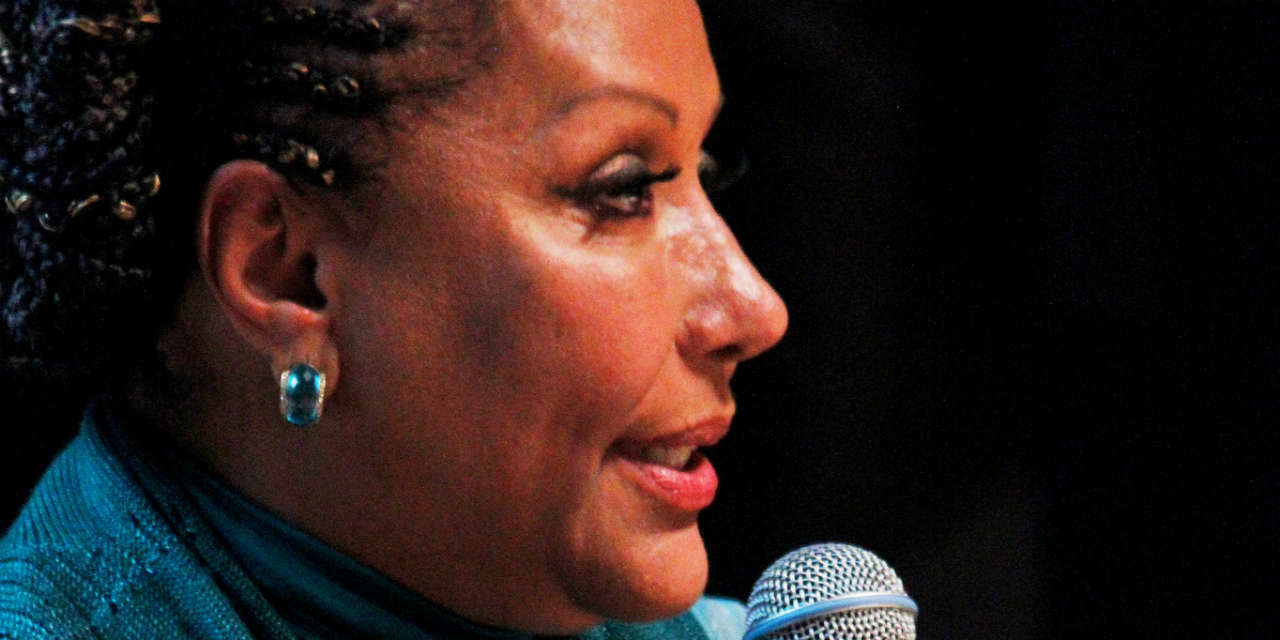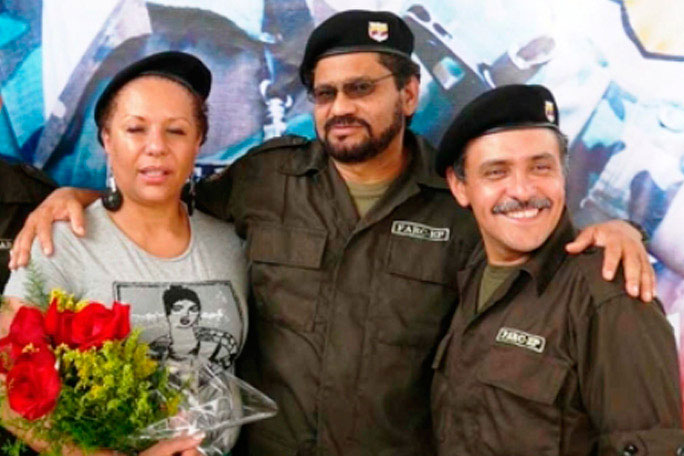Despite a steady electoral base and international recognition, Piedad Cordoba is one of Colombia’s least popular politicians because of her association with Venezuela’s socialist government.
Cordoba, born in the city of Medellin in 1955, has received international acclaim for her successful efforts to negotiate the liberation of hostages held by rebel group FARC.
However, she was also subject to a criminal investigation over her alleged ties to that guerrilla group, but ultimately absolved.
Cordoba had spent more than three decades in politics and government. She became deputy-comptroller of Medellin in 1984 and was the private secretary of Medellin mayor William Jaramillo, her political mentor, between 1986 and 1988.
In the local elections of 1988, Cordoba was elected member of the Medellin city council; a position she held until 1990 when she unsuccessfully tried to run for Congress.
In 1991, when Colombia adopted a new constitution and new elections were held, Cordoba was elected Representative to the House for the Liberal Party.
She became senator in 1994 with most her constituency coming from the department of Antioquia where she was endorsed by Jaramillo, and the Choco department where her father’s family had been of great influence in the departmental Liberal Party leadership for decades.
Cordoba rose to quick fame as one of the country’s most outspoken advocate for a political solution to Colombia’s armed conflict and a defender of minority groups such as Afrocolombians, indigenous, women and the GLBT community.
in 1999, Cordoba became part of board of directors of the Liberal Party, but was kidnapped by the right-wing paramilitary group AUC after a high government intelligence official convinced then-AUC leader Carlos Castaño that Cordoba had ties to the ELN with who the Senator was having talks about a possible peace treaty. Cordoba’s kidnapping caused popular outrage and she was released after two weeks.
Following the kidnapping, Cordoba fled to Canada, but returned months later claiming her personal security situation had changed.
After long-time Liberal Party member Alvaro Uribe split from the party and won the 2002 presidential elections with a hard-line, military approach to the FARC, who at that point had control over one-third of Colombia’s territory, Cordoba converted in one of the most outspoken government critic and was called Colombia’s opposition leader by U.S. President Bill Clinton.
Cordoba lost her seat in Congress in July 2005 after the State Council annulled 4,400 of her votes in the 2002 congressional elections over irregularities. Years later, investigations proved that these elections had been heavily influenced by paramilitary groups and dozens of congressmen ended up in jail for having used paramilitary intimidation of voters to be elected into office.
Cordoba remained active in the Liberal Party, promoting a stronger anti-Uribe opposition. She returned to the Senate after the 2006 elections after which she became increasingly critical of Uribe and his administration.
During a March 2007 speech in Mexico, Cordoba called on “the progressive countries of Latin America” to “break diplomatic ties with Colombia” as, in her opinion, the country was led by a “paramilitary president.”
Allies of Uribe filed criminal charges against Cordoba, which led to the Supreme Court opening a preliminary criminal investigation for treason and conspiracy in November 2007. Colombia’s intelligence agency DAS illegally spied on Cordoba during this trip and shared this information with Cordoba’s political opponents in Congress and government who were trying to build a case.
The investigation never led to official charges and the DAS was later dismantled because of its illegal spying activities.
Despite increasing tension between Cordoba and Uribe, the Colombian president authorized the senator and and Venezuelan President Hugo Chavez to hold talks with the FARC and facilitate the release of hostages and the possible release of FARC guerrillas.
However, Uribe withdrew his support of Cordoba and Chavez after less than four months when Chavez sidetracked Uribe and contacted Colombian army commander Mario Montoya directly and photos appeared of Cordoba wearing a FARC beret during a meeting with FARC leaders.
Uribe later re-authorized the negotiators who jointly negotiated the release of six hostages in January and February 2008. The senator and her “Colombians for Peace” group facilitated the unilateral release of eight more FARC hostages until 2011.
In March 2008, Colombia’s Air Force bombed the encampment of FARC commander “Raul Reyes” just over the border with Ecuador and ground troops confiscated a number of laptops and usb drives. The cross-border attack increased tensions between Colombia, Ecuador and Venezuela, and between Uribe and Cordoba, who claimed the death of Reyes would further complicate the release of hostages.
The Uribe government struck back and released correspondence between Reyes and Cordoba that would prove the senator had been aligning with the guerrillas for her own political gain. These accusations led to investigations of Cordoba’s alleged “FARC-politics” by both the Supreme Court and the Inspector General’s Office.
Inspector General Alejandro Ordoñez — basing his conviction primarily on evidence allegedly found in the Raul Reyes raid — ruled in July 2010 that Cordoba was “aiding and promoting illegal armed groups.” The senator was dismissed and barred from holding public office for 18 years.
Following her congressional ban, Cordoba founded the Marcha Patriotica, an umbrella organization that united hundreds of social, mostly left-leaning civil rights organizations.
The IG’s sentence was nullified by the State Council in 2016 on the grounds Ordoñez had no evidence and Cordoba’s political rights were fully restored.
A few months later, Ordoñez himself was sacked after the same State Council found his reelection was unconstitutional.
The criminal investigation, opened by Colombia’s Supreme Court in June 2008, is still ongoing. However, a conviction is hardly likely as the court dismissed the “Reyes files” as evidence, claiming they were illegally obtained and the chain of custody had been breached.




